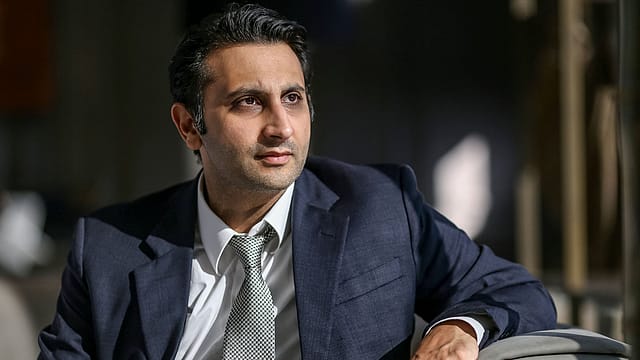Serum's Poonawalla pitches for global pandemic treaty for free flow of vaccines
ADVERTISEMENT

Serum Institute of India (SII)'s chief executive officer Adar Poonawalla has pitched for a 'global pandemic treaty', a concept that could be similar to what the World Health Organization (WHO) is working hard to develop as a global accord on pandemic prevention, preparedness and response. The 'treaty' that Poonawalla has in mind is broadly an agreement between countries to ensure free flow of life saving products, raw materials, and harmonized regulatory mechanisms in the case of a pandemic for equitable sharing of resources at affordable rates across the world. The WHO plan is in its formative stage as the apex decision making body of WHO, the World Health Assembly, had taken a consensus decision to protect the world from future infectious diseases crises through a convention, agreement or other international instrument meant to protect and promote the well-being of all people only in December 2021.
Expressing the idea of a global treaty during an interaction at the National Leadership Conclave of All India Management Association (AIMA) in Delhi, Poonawalla said "whether it is the United Nations (UN) that takes the lead or WTO or WHO, one of these global organizations will have to get all the countries to sign up". The interaction was led by Sanjiv Goenka, chairman, RP-Sanjiv Goenka Group.
Poonawalla said that India has learned a lot and is in a stronger and better position to face any future wave or future pandemics. "In 2020, we didn't have PPE kit manufacturing, we didn't have enough testing and genomic facilities to understand what type of viruses are circulating, we didn't have enough vaccines, hospital infrastructure…we have now learned and built so many things. What we now need is a global pandemic treaty. We need to address this not only as a nation, but other countries should also sign up to that so that we have, in a pandemic situation, global harmonization of regulatory standards, mutual recognition of vaccine certifications. We need to have a free flow of goods and raw materials and vaccines in a crisis so that sharing happens," he explained.
According to Poonawalla, a lot of people in the African nations could not get the vaccines because the wealthier nations had bought all the pharmaceuticals and vaccines at that time. A global pandemic treaty will make it much harder for political leaders to do that on a global stage, he opined. Citing the example of SII, the difficulties the company faced in importing raw materials for vaccine manufacturing from the US during peak pandemic last year, Poonawalla said there would not have been any restrictions if there was a pandemic treaty among countries.
"Having a treaty will explain all this and give those commitments ahead of time. Then there will be no ambiguity on what we need to do and what we should be doing, what is right and what is wrong or what is politically correct or what is ethically correct. It will then be good for everybody including the companies who have made investments, taken risks, given commitments and the poorer nations that are able to access affordable drugs and medicines," he said.